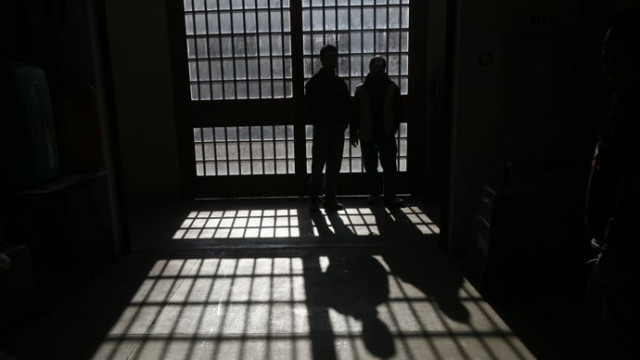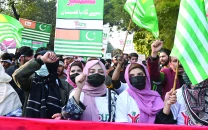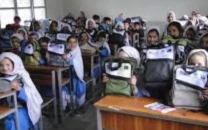After 14 years in jail, 4 death row inmates acquitted
After six years, the apex court took up the case on January 25 this year

After six years, the apex court took up the case on January 25 this year. PHOTO: REUTERS
The three-judge bench, headed by Justice Dost Muhammad Khan, issued the 10-page detailed judgment in this regard.
Citing a report filed by the prison superintendent of Gujrat district, the court ruled that because one of the appellants, Sajjad, son of Muhammad Inayat, had died in jail, his appeal could no longer be heard.
After a decade in jail, death row inmates acquitted by SC
The apex court’s ruling set aside an impugned judgment issued on June 17, 2010 by a high court, acquitting all “convictions and sentences awarded to other appellants/ accused … Mehdi, son of Inayat, Afzaal Mehdi, son of Mehdi Khan and Masood alias Rana, son of Adalat”.
Detailed reasons would soon follow,” the judgment stated.
In October last year, the apex court had acquitted Mazhar Hussain two years after his death.
The judgment observed that corroboratory evidence should originate from independent sources, besides endorsing the account of the eyewitnesses.
Eyewitnesses, in the absence of extraordinary and exceptional circumstances, cannot corroborate themselves by becoming attesting witness/witnesses to the recovery of crime articles.
“In other words, eyewitnesses cannot corroborate themselves … Corroboratory evidence must come from independent source and shall be supported by independent witnesses other than eyewitnesses, thus, these recoveries are … of no judicial efficacy,” it added.
Muhammad Faazil, who reported the crime at the Sarai Alamgir police station on February 22, 2003 alleged that five assailants – Inayat and his sons Zaraat, Mehdi, and Sajjad, Abdul Salam son of Walayat – had mounted an armed attack on him and his sons. Two of his sons were killed in the attack.
Motive for the crime was shown to be enmity between the two families.
In 2005, a trial court awarded death sentences to Zaraat, Mehdi, Sajjad and Abdul Salam on two counts while other accused were awarded life imprisonment terms.
The Lahore High Court maintained the trial court and dismissed the convicts’ appeals on June 17, 2010. Subsequently, the Supreme Court had granted leave in 2011.
After six years, the apex court took up the case on January 25 this year.
According to the detailed judgment, wherein it is stated that according to the FIR, all the accused encircled the complainant, the witnesses and both the deceased thus, in an apparent attempt to kill all of them.
Top court frees another death-row convict after a decade
“The complainant, being the father of the deceased, and the head of the family, was supposed to be the prime target … He vigorously pursued the case … and also deposed against them as an eyewitness. The site plan … showed that he and other (witnesses) were at the mercy of the assailants, but despite being the prime target, no threat was extended to him.
The assailants afforded the complainant with “unbelievable courtesy and mercy”, knowing full well that he and other witnesses would depose against them if they were left unhurt.
“This is an absolutely unbelievable story. Such behavior, on the part of the accused, runs counter to natural human conduct … explained in the provisions of Article 129 of the Qanun-e-Shahadat Order of 1984 … The court is unable to accept such an unbelievable proposition.”
The judgment further stated that if there was any doubt about a witness’ presence at the crime scene “this would be sufficient to discard the (entire) testimony.
After reviewing all evidence, the court stated: “We are of the considered view that the prosecution failed to prove its case against appellants beyond any reasonable doubt, therefore, this appeal (Criminal Appeal No.325/2011) is allowed and while extending benefit of doubt to the appellants, they are acquitted of all charges leveled against them. For reasons given above, Criminal Appeal No324/2011 filed by Mst Rukhsana Begum is dismissed,” the judgment stated.
Although the counsel for the complainant strongly contested the court’s view, he was unable to disprove that some of the acquitted accused had been killed.
Published in The Express Tribune, March 10th, 2017.



















COMMENTS
Comments are moderated and generally will be posted if they are on-topic and not abusive.
For more information, please see our Comments FAQ